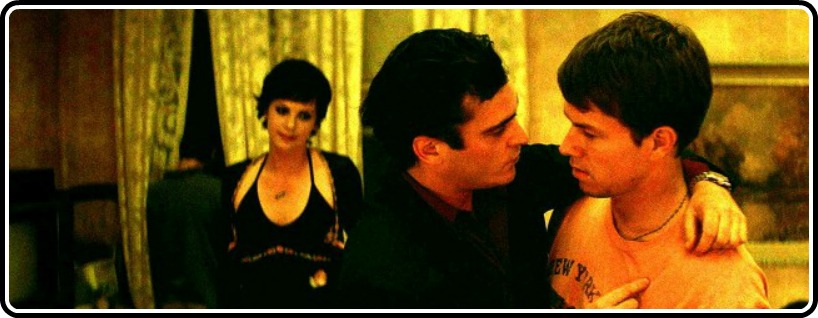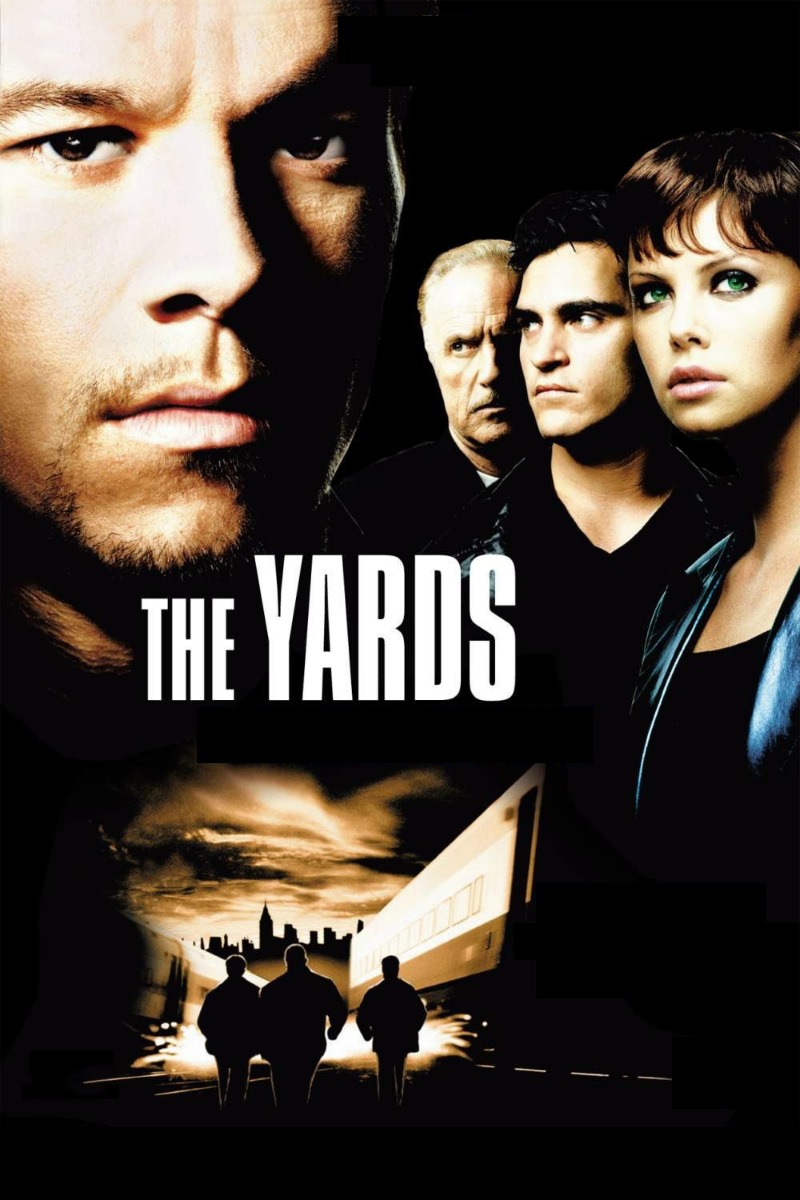
Very few American filmmakers have made as big a splash on the film world landscape as director James Gray. From the very start of his career with the award-winning, festival darling 1994 film Little Odessa, Gray has been a darling among film critics and cinephiles across the globe, becoming one of the great and truly beloved auteurs this country has produced in ages.
And yet, sadly, his films are relatively hard to come by on home video. Odessa is only available on a low-rent DVD version, and his follow up, arguably his greatest and most expansive work, 2000’s The Yards, is most relatively available in a handful of different variations of Miramax box sets one finds in the discount bins at your local Wal-mart or Costco. For one of the great American auteurs of this generation, this film most certainly deserves better.
Following a lengthy break from directing following his debut in 1994, Gray returned with this film in 2000, and once again made massive waves on the festival circuit. The film tells the story of Leo Handler (Mark Wahlberg), a man living in Queens, New York who is freshly out on parole and on his way to his mother’s home. He’s the focus of a surprise party where we meet his cousin, the gorgeous and enigmatic Erica (Charlize Theron) and her boyfriend, Willie (Joaquin Phoenix). As the film progresses, we discover that Leo had likely fallen on a sword of sorts, taking a rap for an old gang of friends, all of whom come to say thank you, and welcome home. Now set to try and go straight for once in his life, Leo looks to join his cousin’s step father Frank (James Caan) as a railway car repairman. Set to join a two year training program, things go south after he’s found with Willie in the worst possible place at the worst possible time. A quiet and haunting crime epic the type of which is rarely ever made these days, Gray’s film is a gorgeous and lush take on your run of the mill crime film, one that feels both fresh and deliciously locked in an age seemingly long gone.
While being a film driven almost exclusively by a handful of career-best performances narratively, Gray is ultimately the film’s great star. With a script co-written by he and Matt Reeves (yes, that Matt Reeves), the film takes cues from films ranging from On The Waterfront in its tale of corruption and great crime classics in its epic familial scale. Gray as a director allows scenes to breath, giving us arguably his most lyrical and truly quiet piece of work yet. With gorgeous and muted photography from master cinematographer Harry Savides, the film is a lush and often somber take on a tried and true genre that uses Savides’ dark photography to give the film a realism one doesn’t quite get out of the crook-gone-straight crime tale. A handful of shots here are absolutely breathtaking, be it his use of sound (or lack thereof) during the few truly tense moments here, or a pair of tracking shots that seem to bookend the picture, all making this a real stepping stone for the beloved filmmaker. The scale here also feels quite grand despite being an intimate and family-driven story, thanks to Gray’s work behind the camera and the fantastic screenplay here from he and Reeves. It’s as simple as a little thing like Gray not allowing us to hear a conversation between two characters, only to have another ask why he couldn’t be part of it, that gives the film a beautiful intimacy unlike any the genre has really seen.
However, as a character study, this type of film needs and craves layered and rich performances, and thankfully it has them all in spades. Wahlberg stars here as Leo, and while it’s easy to scoff at Wahlberg as an actor, here he shows a side of him we easily forget he has today. Stayed and quiet just like the film he leads, Wahlberg’s performance is dense and beautifully muted, seeing him get under the skin of a man left for dead by a group of friends he once loved enough to take a jail sentence for, only to be roped in once again to the life of crime he wanted to avoid. Entirely an existential, noir-esque tale, Wahlberg’s Leo is the perfect vessel for this film to play out through, especially opposite the two main forces in his life, his uncle (Caan) and best friend (Phoenix). Both Caan and Phoenix are at their very best here, with the latter being an awards darling for his performance here. Phoenix is the opposite of Wahlberg’s Leo in almost every way, a charismatic crew leader that seems to be able to have the world at the very tip of his tongue. Caan is brooding and seemingly omnipresent, taking the role of threatening “godfather” on with a delightful glee. There’s a quiet fire behind each of these performances, and while Theron only really comes alive near the film’s final act, she rounds out an almost universally great collection of actors that really dig deep into this story, bringing to life this rich meditation on family and loyalty. It may be a premise we’ve all seen a million times, but with this almost European sense of style (Claude Chabrol was said to be a huge fan of Gray’s debut film, oddly enough) it gives the film a grand scale and a fresh sense of style.
As mentioned above, the film is available on DVD and Blu-ray, and while it’s even on Netflix currently, it could very much use a new, richer home video release. A new restoration would help bring to life Savides’ fantastic work, and the use of music and sound here could really be brought into the spotlight with a new transfer as well. A commentary would be more than welcome, as would be a retrospective interview section looking at the production and release of the film. Gray being one of the great directors of this era, a visual essay about his style and influences would be welcome, and I can’t help but think co-writer Matt Reeves would be a fantastic interview as well, giving us an insight into the film’s screenplay and his writing process. Maybe add Odessa as a supplement like the recent release of Steven Soderbergh’s King Of The Hill (which included the director’s follow-up The Underneath), all with a collection of various source interviews that Gray gave during the film’s release.
Overall, while Gray’s film may be a bit long in the tooth for many viewers, and lacks overt tension, this quiet tale of family and loyalty is a dense and rich drama driven by supreme performances across the board. Gray uses gorgeous photography and a lyrical camera to weave this crime tale, and an epic scope helps make this film an unforgettable American classic, and one that deserves to be more than fodder for a local supermarket discount bin.




![Bergman Island (The Criterion Collection) [Blu-ray]](https://criterioncast.com/wp-content/uploads/2022/11/bergman-island-the-criterion-collection-blu-ray-400x496.jpg)
![This Is Not a Burial, It’s a Resurrection (The Criterion Collection) [Blu-ray]](https://criterioncast.com/wp-content/uploads/2022/11/this-is-not-a-burial-its-a-resurrection-the-criterion-collection-blu-ray-400x496.jpg)
![Lars von Trier's Europe Trilogy (The Criterion Collection) [The Element of Crime/Epidemic/Europa] [Blu-ray]](https://criterioncast.com/wp-content/uploads/2022/11/lars-von-triers-europe-trilogy-the-criterion-collection-the-element-of-400x496.jpg)
![Imitation of Life (The Criterion Collection) [Blu-ray]](https://criterioncast.com/wp-content/uploads/2022/11/imitation-of-life-the-criterion-collection-blu-ray-400x496.jpg)
![The Adventures of Baron Munchausen (The Criterion Collection) [4K UHD]](https://criterioncast.com/wp-content/uploads/2022/11/the-adventures-of-baron-munchausen-the-criterion-collection-4k-uhd-400x496.jpg)
![Cooley High [Criterion Collection] [Blu-ray] [1975]](https://criterioncast.com/wp-content/uploads/2022/11/cooley-high-criterion-collection-blu-ray-1975-400x496.jpg)